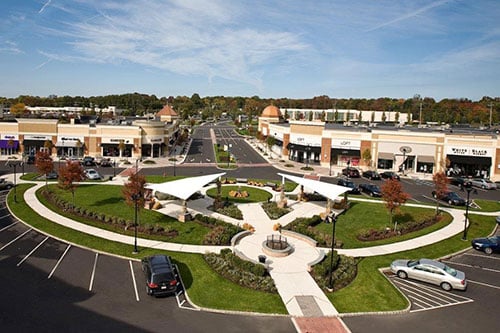CINCINNATI—Cincinnati's Bond Hill neighborhood has become somewhat blighted, but the Port of Greater Cincinnati Development Authority has decided now is the time to launch its $80 million MidPointe Crossing mixed-use development there and help it recover. Other development has started to pop up in the surrounding area and the authority “saw its opportunity to help the area even further,” Scott Abernethy, senior vice president of Cassidy Turley, tells GlobeSt.com.
As reported last week in GlobeSt.com, the authority has begun planning and site development for MidPointe, including the December 2013 demolition of Swifton Commons, the region's first shopping mall, and one that had become obsolete. And the authority selected Cassidy Turley to lead land sales efforts for the development. Abernethy and associate Joshua Smitherman will handle office land sales, and vice president Andrew Sellet and associate Terry Ohnmeis will handle retail land sales.
“This area has not received a lot of attention from retailers,” Sellet tells GlobeSt.com. “But there are a lot of people and a lot of disposable income there.” He estimates that 100,000 people, many with middle-class level incomes, live within three miles of the site. However, he does not expect big anchor stores like Kroger's to put in bids on the land.
“They already have dots on the map surrounding this market,” Sellet says. “These anchors have already landed,” but the site remains attractive to those provide amenities such as hotels, fitness centers, family restaurants, and other types of outlets.
In addition to retail, Cassidy officials will work to put in an office component that could bring the project's first phase up to 500,000-square-feet. Abernethy says speculative construction won't happen here. Instead, they will pitch the site to companies looking for sites for build-to-suits. Strong possibilities for this sector include companies, like Kroger's, that even though they have established anchor stores elsewhere, might consider MidPointe for back office activity. Furthermore, the metro area has started running out of space to put operations such as call centers.
“Just having the ability to do a deal with the port” should spark a great deal of interest, says Abernethy. Unlike many private actors, the authority can provide a bunch of tax incentives and offer cheap land. Just about one mile from the MidPointe site, land for office space costs about $200,000 to $300,000 an acre, which could price some potential users out of those neighborhoods.
For the port authority, this project would be considered “a win,” adds Sellet, “if they were able to bring energy back to this market after what it's been through the last ten or fifteen years.”
Continue Reading for Free
Register and gain access to:
- Breaking commercial real estate news and analysis, on-site and via our newsletters and custom alerts
- Educational webcasts, white papers, and ebooks from industry thought leaders
- Critical coverage of the property casualty insurance and financial advisory markets on our other ALM sites, PropertyCasualty360 and ThinkAdvisor
Already have an account? Sign In Now
© 2024 ALM Global, LLC, All Rights Reserved. Request academic re-use from www.copyright.com. All other uses, submit a request to [email protected]. For more information visit Asset & Logo Licensing.








